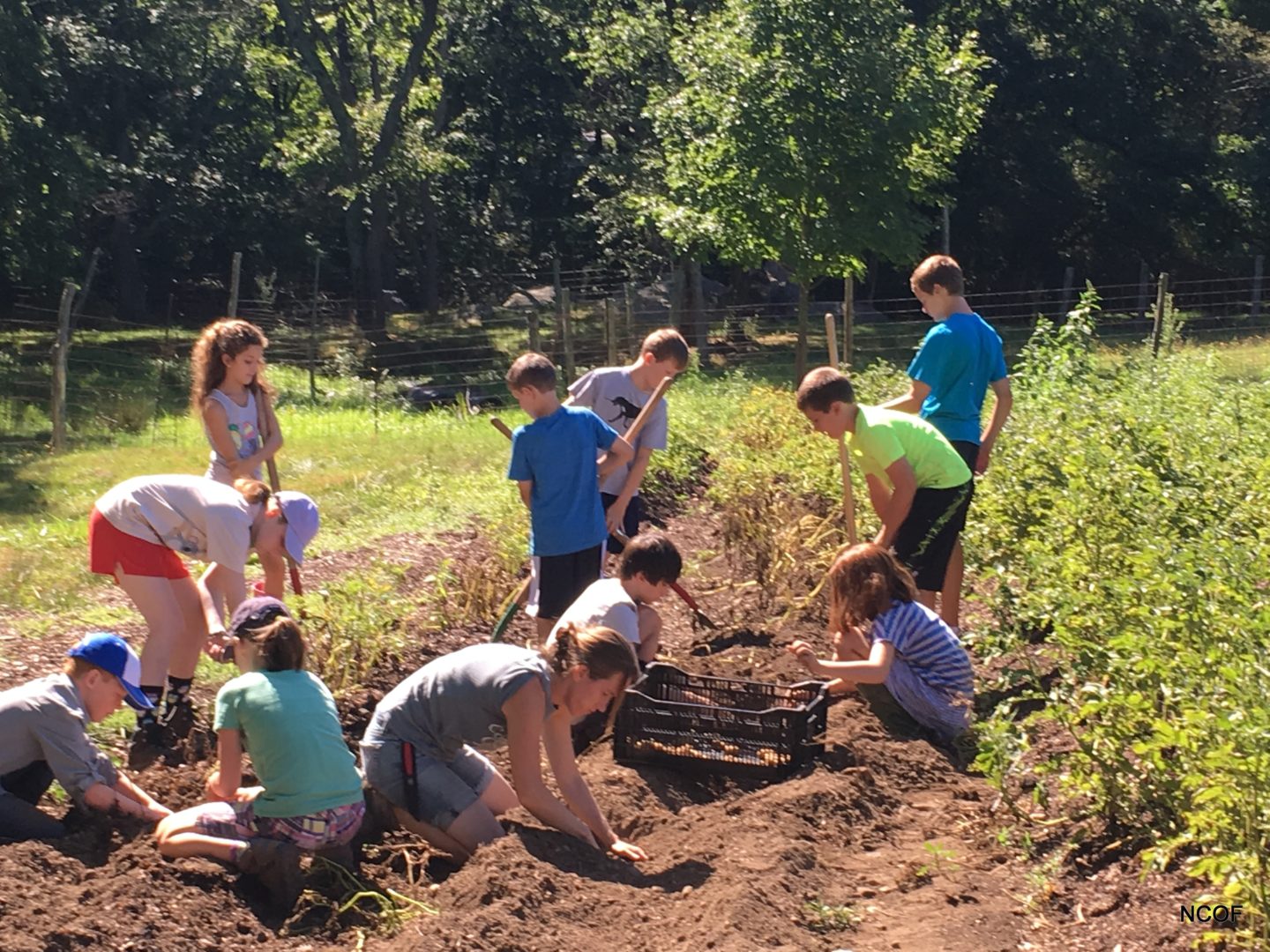Questions To Consider Before Signing A Lease
 Overview
Overview
It’s always a good idea to ask questions before entering into a farm lease. The following list of questions is a good starting place, and the farm lease checklists listed below are valuable resources to help you get a sense of what you should expect from a good farm lease – before you sign on the dotted line.
Farmer Spotlight:
Natick Community Organic Farm

The Natick Community Organic Farm (NCOF) in Natick, Massachusetts, has been operating successfully on 27 acres of town-owned land for more than 40 years.
 Questions To Ask
Questions To Ask
- Are all the parties (landlords, tenants, etc.) listed and accurately described (correct individual and/or business names, correct addresses, contact information)?
- What property is being leased? Has the land been surveyed? Is a property map available and attached to the lease? Are the parties clear on property boundaries and uses? How familiar is the potential tenant with the land?
- How long will the lease last? Is a short-term (less than 3 years) or a long-term (3 or more years) lease the desired option?
- What is the procedure to follow if a party wishes to end the lease early? Is there a required notice period that is fair to both the landlord and the tenant? Can the parties terminate for any reason, or just in specific situations described in the lease?
- How will rent be calculated and when will it be paid? What happens if rent is late or unpaid?
- What activities are permitted on the property and what is prohibited? Are any forms of agritourism allowed (farm dinners, weddings, hay rides, tours, etc.)? Do such events, if permitted, require that additional rent be paid to the landlord? Are these activities allowed under local laws or ordinances?
- Which party is responsible for what repairs? What is routine maintenance vs. capital improvements? Who pays for what? Who owns capital improvements at the end of the lease term? Will the tenant be reimbursed for capital improvements and/or associated labor in any way?
- What kind of insurance is required, how much, and which parties will maintain it?
- Is there a disaster clause allowing the parties to terminate or modify the lease in case of a natural disaster (flood, tornado, earthquake, etc.)?
- Is there an indemnification clause for both parties? An indemnification clause generally states that one or both parties agree to compensate the other for any loss stemming from their own actions or negligence.
- Is there a mediation or negotiation process that both parties agree to in the case of a dispute?
- Are there any stewardship requirements relating to land, water, or soil? Are any agricultural practices prohibited (e.g., the use of synthetic fertilizers or pesticides)? Are any practices (e.g., integrated pest management) or certifications (e.g., USDA organic) required?
- What is the quality of the soil? What is the arrangement regarding water access? What's the history of the use of the land? Can you talk to any former tenants about the land or the landowner? Are there are deed restrictions on the land, i.e., easements that would restrict a tenant's use?
- What type of communication is required between the landlord and tenant over the course of the lease? Will there be annual meetings or inspections?
- Who will live on the property and how will the use of any farmhouses or buildings be handled? Will the tenant be allowed to put up structures or new buildings (e.g., hoop houses, greenhouses, pack houses)? If the tenant is living on the property, is there a separate residential lease?
- Should an attorney be asked to review or draft the lease? Can one attorney represent both sides, or should the landlord and tenant each have an attorney?
- Other questions can be tailored to farmers’ individual situations.
Farm Lease Checklists
The following is a collection of leasing checklists developed by farm organizations nationwide. These checklists have been developed from various perspectives (farmer, landowner, beginning farmer, lawyer, etc.) and can be used to help you get a sense of your leasing goals or to assess a lease.
A lawyer who has experience working with farmers can also help you review or draft a farm lease. It’s a smart business practice to have a lawyer review a farm lease, especially if the lease is for multiple years and you are depending on the lease for income and/or housing.
- This guide offers a list of issues to think about when attempting to create a sustainable land lease.
Farm Commons, Drafting a Lease: Questions for Farmers and Landowners to Ask, by Rachel Armstrong
- This resource from Farm Commons describes a comprehensive list of issues that come up when drafting a farm lease.
The Ohio State University Extension, Farm Rental Agreement Checklist, by Donald J. Breece
- Ohio State’s website contains this checklist and additional resources regarding agricultural leasing.
Land for Good, Elements of a Good Farm Lease
- Land for Good has many resources for farmers, including materials relating to farm leasing. This fact sheet contains basic information regarding the elements of a lease.
University of Vermont, New Farmer Project
- The University of Vermont’s New Farmer Project provides a leasing checklist and additional leasing resources for farmers.
Please also see the Leasing Resources page in this toolkit for more information on farm leasing, and learn about our upcoming Farm Lease Builder here.
 How An Attorney Can Help
How An Attorney Can Help
The Attorney’s Role
It’s not an attorney’s job to make decisions for farmers or to set farm transfer goals. Instead, attorneys can provide information about pros and cons of different options, advice about what is common versus unusual, fair versus unfair, etc. Attorneys can help farmers understand the range of possible farm transfer goals and help narrow down individual options so that farmers can make final decisions.
How An Attorney Can Help With Leasing
- Review a farm lease that you have drafted or the other party has drafted.
- Draft a farm lease.
- Negotiate lease terms.
- Navigate a dispute that might arise during the course of a lease relationship.
- Enforce a lease agreement if a relationship falls apart, including helping farmers avoid eviction.
Related Legal Tools



The Center for Agriculture and Food Systems is an initiative of Vermont Law School, and this toolkit provides general legal information for educational purposes only. It is not meant to substitute, and should not be relied upon, for legal advice. Each farmer’s circumstances are unique, state laws vary, and the information contained herein is specific to the time of publication. Accordingly, for legal advice, please consult an attorney licensed in your state.
